This post is about how to do your own crypto research.
Among others, you’ll find the reasons why you need to do crypto research and important questions to ask when performing crypto research.
I’ll also include personal tips, some resources for you to perform your own crypto analysis, and a list of cryptos that I invested in.
Table of Contents
[Disclaimer: I am not a certified financial planner. My sharing is purely based on my own research and personal experience and is intended as educational material. In order to make the best financial decision that suits your own needs, you must conduct your own research and seek the advice of a certified financial planner if necessary.]
Why do you need to do crypto research?
Performing cryptocurrency (crypto) research is vital before buying any crypto. Below are the reasons why you need to do proper crypto research.
Avoid buying the wrong cryptocurrency
Some cryptos exist with little or no value, but just to bilk investors through pump-and-dump schemes. Performing crypto research may prevent you from buying such cryptos.
Helping you to make a more informed investment decision
When you do crypto research, you are gathering as much information as possible about certain cryptos. This also means you are trying to understand everything about the digital asset.
Thus, crypto research may help you to make a more informed investment decision.
Creating a healthier crypto space
By performing crypto research, more investors become educated crypto investors. This discourages the development of crap coins and shall create a healthier crypto space that benefits the crypto community.
How to do your own crypto research?
Since the inception of Bitcoin in 2009, more and more coins emerge. At the time of writing, there are over 20,000 cryptos in circulation.
Many believe this figure will continue to grow.
As a cryptocurrency investor, I want to avoid buying the wrong coin. It is not easy to choose from the long list of coins. It takes a lot of effort to filter and decide which cryptocurrency to invest in.
Personally, I do crypto research by asking questions related to the crypto which I intend to buy.
Below is a list of the questions I use as guidelines throughout my cryptocurrency investing journey.
1. Who creates the crypto?
The first question to ask before buying any crypto is who is the person (or team) that creates the crypto?
This is followed by other questions such as:
- is this a credible person?
- is he just imitate from existing crypto protocols (such as Litecoin which was created by Charlie Lee to imitate Bitcoin)?
- is he still active on the project?

Let’s take Bitcoin as an example. I believe one of the reasons for Bitcoin’s success is its creator (or creators) with the pseudonym Satoshi Nakamoto is still unknown.
With the anonymity, the possibility of Bitcoin continuing as the leading crypto is higher.
If one day, Satoshi Nakamoto reveals himself (or themselves), I think I might reconsider owning Bitcoin. When the identity is revealed, I worry about manipulations and other consequences. It’s best if Satoshi Nakamoto remains anonymous. But, these are just my personal opinions.
With that said, This does not mean cryptos with known creators are not worth investing in. Knowing the creator is just one of the many elements in crypto research.
Other than Bitcoin, you can easily search online for the creators of most cryptocurrencies. With the power of social media, a crypto creator’s words can significantly affect crypto prices and performances.
Thus, you might want to pay attention to the creators of the crypto you intend to buy. Perhaps follow their social media accounts. Or, at least keep track of their latest sharing on the crypto space.
2. What is the crypto’s use case?
The next question for my crypto research is why the coin is created. In other words, what’s the use case? Or what types of problems does the crypto intend to solve?
Usually, you can find these in the crypto’s white paper.
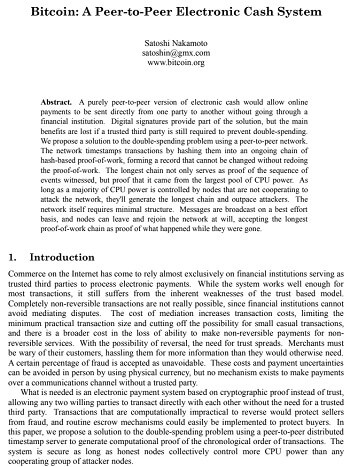
For example, Bitcoin’s whitepaper (PDF) mentions its purpose is to create an open digital payment system without the need for a trusted third party such as a bank.
Compared to the traditional international money transferring that takes days and requires you to have bank accounts and SWIFT codes, Bitcoin makes it possible for you to transfer your money worldwide easily in seconds.
It seems like many are supporting this open monetary system and foresee there’s a future value in Bitcoin. As more and more people are adopting Bitcoin, Bitcoin emerges as a store value or digital gold.
Another example is Ethereum (the second top crypto after Bitcoin). Ethereum is created as a platform where developers can build all types of applications on it. Some say it is becoming the world’s cloud computing.
Among the use cases are:
- Decentralized Finance (DeFi) – making financial transactions without involving a third party.
- Smart contracts – a self-executing contract when the preset conditions are met, eliminating the need for lawyers.
- Non-Fungible Token (NFT) – ownership of digital arts.
The use cases are important because it is an indication of whether there’s real value in the crypto. Generally, crypto that can solve real-world problems has good potential. The bigger or more difficult problem it solves, the more value it has.
3. How is the crypto created?
The next crypto research question is how is the crypto created.
Below are some of the common ways of generating cryptocurrency.
Mining

Most cryptocurrencies are mined. Mining is the digital process where new coins are generated when transactions are confirmed and added to the blockchain.
Example of cryptocurrencies that are mined includes Bitcoin, Litecoin, and Dogecoin.
The common blockchain consensus mechanism is proof of work and proof of stake. Compared to proof of stake, proof of work involves a massive amount of computer resources competing to solve complex mathematical puzzles for the rewards.
Many view the process as not environmentally friendly. Over the long term, as the public is growing to be more environmental concerns, you want to know whether this factor would affect your crypto investing decision.
Thus, it is good to know the type of consensus mechanism and how it works before you start investing in a cryptocurrency.
Predefine earlier by the creator and development team
Some cryptocurrencies are created when the project started, such as Ripple XRP. Ripple Lab pre-mined a total supply of 100 billion XRP tokens during the launch.
Almost half of XRP tokens are in circulation. The majority of tokens are held and controlled by Ripple Lab.
By knowing this, you can weigh if you want to take the risk with coins where a portion of the coins is controlled by an entity.
4. What is the current market share status of the crypto?
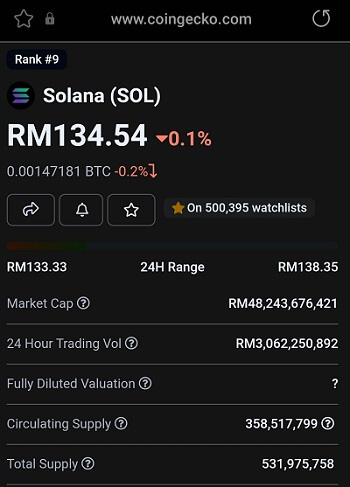
Your cryptocurrency research questions may include the crypto’s current market share. Among the things that you want to know about the coin may include the following:
- Current ranking
- Volume traded in 24 hours
- Total locked value
- Market cap
- Market dominance
- Circulating supply
- Max supply
- All-time high (ATH) and ATH date
- All-time low (ATL) and ATL date
- Return on investment (ROI)
- Adoption rate
These metrics give you an overall picture of the crypto’s current status. Together with other crypto analyses, you can weight whether you want to start investing in a cryptocurrency.
5. The distribution of the coin
Another question you want to ask before investing in a cryptocurrency is what is the distribution of the coin.
It will be good to find out the allocation or distribution percentage of the coin.
For example, Ethereum’s initial supply breakdown is:
- 16.53% – Founders and Projects
- 83.47 – Investors
While Chainlink’s initial supply breakdown is:
- 30% – Founders & Projects
- 35% – Premined Rewards & Airdrops
- 35% – Investors
Personally, I prefer crypto with a lower percentage allocated to insiders. Because it means less control by a certain group of people.
6. Unique features of the crypto
As part of your crypto analysis, it is also important to know the unique features of the crypto.
Some examples are as below:
Limited supply
- Bitcoin has a limited supply of 21 million coins (many investors are trying to own one Bitcoin, making Bitcoin a consideration as store value).
- Litecoin has a limited supply of 84 million coins.
High transaction speed
- Ripple XRP, Cardano, and Solana are among the cryptos with high transaction speed.
Offer lower transaction fees
- Stellar, NANO, and Cardano are among the cryptos with the lowest transaction fees.
With a different approach
- Cardano claimed to be the first crypto based on peer-reviewed research with a scientific philosophy approach.
The uniqueness offers some clues whether the crypto holds the value of a good investment.
Personal tips on crypto research
Here are some of my personal tips on performing crypto research.
More questions to ask before buying the crypto
- Does the crypto have potential?
- Is there room for growth?
- Do you think the coin has value in the next 1 year? 3 years? 5 years? What support this answer?
- Is the project transparent?
- Is the crypto a pump-and-dump scheme?
- Can I trust the people behind the coin? Any proof? Do they have a specific agenda or bad reputation?
- How active is the community?
- Is the crypto offered by your local authorized Digital Asset Exchange (DAX)?
Emphasize reliable sources
Learn to differentiate between fake news, facts, and personal opinions. Make sure to check the article and evaluate its sources thoroughly.
The same is applied to social media postings such as those on Twitter, Facebook, Youtube, and Tiktok. Learn to identify misleading, biased, and false information. Always emphasize reliable sources.
Most importantly, don’t believe everything you read or hear.
Be curious
When someone promotes a cryptocurrency, try to find the reasons they are promoting the coin. Is it paid advice? It would be helpful if they make it clear in their content.
Do your own research
Don’t simply buy because you see someone else buy the crypto. Do your own research and take responsibility for your own crypto investment.
Be extra careful
When someone only mentions the positive side of a crypto project, something is not right. I believe in a balanced opinion, mentioning both the pros and cons.
So, always look for views and opinions from different sources and angles.
Continuous learning
As the crypto market moves fast, things can change rapidly. A new digital asset may emerge anytime, taking over less favorable coins.
It’s best to keep on track of the latest happenings in the crypto space. Continue to do your own crypto research so that cryptocurrency can fit nicely into your personal finance.
Useful resources for crypto research
Below are some useful resources when performing crypto research.
CoinMarketCap
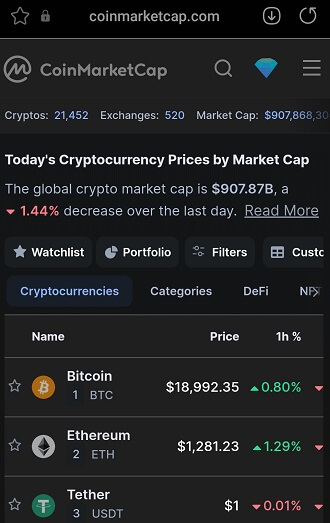
Founded by Brandon Chez in 2013 but acquired by Binance Holdings Ltd in 2020. CoinMarketCap is among the top price-tracking website for crypto assets.
The platform claimed to be the number one source for crypto news, coin stats, and cryptocurrency tracking.
Usually, I use CoinMarketCap to check on crypto prices, rankings, and the latest happening in the crypto space.
CoinGecko
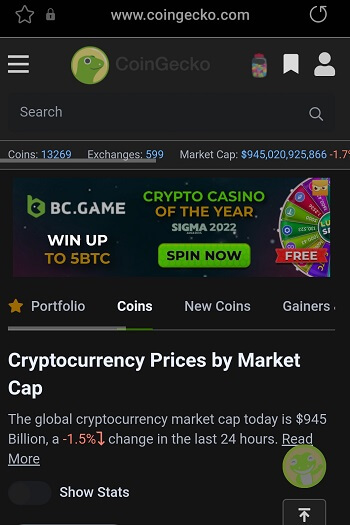
Founded by Bobby Ong and TM Lee in 2014, CoinGecko is an independent platform providing an unbiased source of information for tracking the crypto market.
On CoinGecko you’ll find crypto price tracking, volume and market capitalization, community growth, open-source code development, major events, and on-chain metrics.
Something worth mentioning, both founders are young Malaysians. I am very proud of them.
So, other than CoinMarketCap, I also use CoinGecko as part of my cryptocurrency research.
Messari
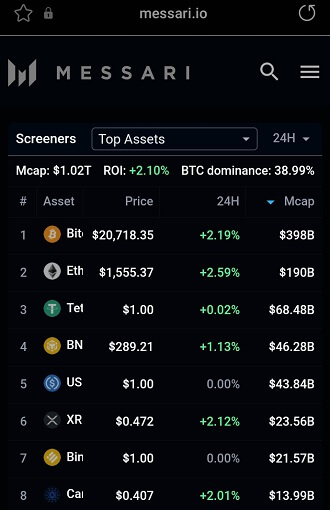
Founded in 2018, Messari is a cryptocurrency data library platform offering reliable market intelligence for the crypto market.
The platform promotes transparency and smart-decision making enabling crypto investors and the community to make well-informed decisions.
The platform offers different plans for you to have full access to their research. But, I find the free resources available such as the summary of specific crypto sufficient for my crypto research.
Which cryptos do I currently hold?
Based on my crypto research, these are the cryptos that I currently hold:
- Bitcoin (BTC)
- Ethereum (ETH)
- Litecoin (LTC)
- Ripple XRP (XRP)
- Solana (SOL)
- Cardano (ADA)
- Chainlink (LINK)
- Uniswap (UNI)
- Avalanche (AVAX)
- Poligon (MATIC)
I believe these cryptos have long-term investment value.
As crypto markets move fast, my cryptos portfolio may change from time to time.
Please don’t buy based on my crypto list, but invest in crypto based on your own research.
Final thoughts
With the above sharing, I hope you have an idea of how to do your own crypto research. Or at least, you know what questions to ask before you start investing in crypto.
Personally, these questions have helped me to reduce the risk of investing in the wrong cryptocurrency. I hope you too find the list of questions helpful in your crypto-investing journey.
Lastly, if you wish to start investing in cryptocurrency, you may register for Luno Malaysia and use my Luno promo code <PAWHVW> to receive RM75 in free Bitcoin (Luno Malaysia is the first DAX approved by the Securities Commission Malaysia (SC)).
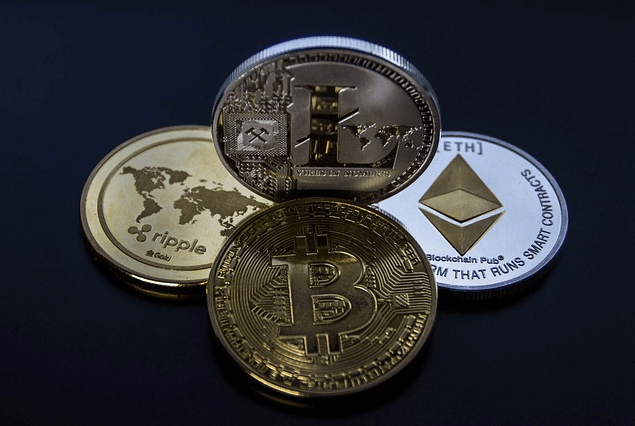
Which currency will you suggest for newbies?
Hi Anderson,
Those new to cryptocurrency can consider more ‘mature’ cryptos such as Bitcoin (BTC) or Ethereum (ETH). But, always remember cryptocurrency is such as unique type of asset – it’s highly volatile. Anything can happen at any time to any cryptos.
So, what’s considered mature now might not be the same in the next few months or years. Always do your own crypto research and keep yourself updated with the latest news in the crypto space.